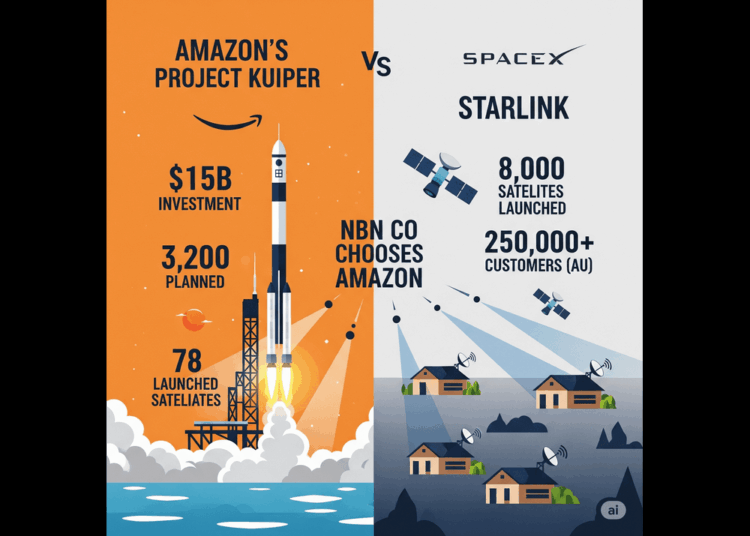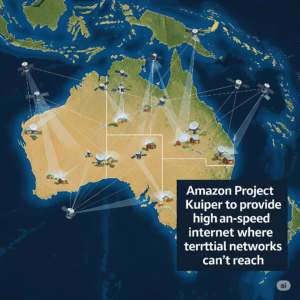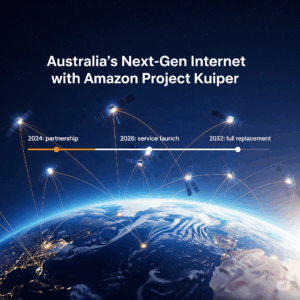Australia’s Internet Network Partners with Amazon’s Satellite Service
In a major shift in Australia’s digital connectivity strategy, the government-owned National Broadband Network (NBN Co) has signed an agreement with Amazon’s Project Kuiper to deliver high-speed satellite internet to remote areas of the country. This move bypasses Elon Musk’s Starlink, currently the largest provider of satellite-based internet services in Australia.
Starting in 2026, Project Kuiper’s low-Earth orbit satellites will gradually replace two aging Australian satellites scheduled for decommissioning in 2032. According to a joint statement by NBN Co and Amazon, the partnership aims to bring reliable internet access to around 300,000 homes and businesses located beyond the reach of NBN’s terrestrial network.
Amazon’s Project Kuiper: A New Era of Satellite Connectivity
Amazon’s Project Kuiper, though still in its early stages, promises a robust solution for rural connectivity. With an investment of approximately $15 billion, Amazon plans to deploy over 3,200 low-Earth orbit satellites. These satellites will use advanced optical links to communicate with each other and with ground-based antennas, ensuring seamless coverage for underserved regions.
Currently, Project Kuiper has launched just 78 satellites, following its first deployment in April. Despite its untested status globally, NBN expressed confidence in Amazon’s ability to meet its service commitments.
Gavin Williams, NBN’s Chief Development Officer for Regional and Remote Services, stated:
“We have every confidence that we’ve got a partner in Kuiper that will do what they say they’re going to do.”
Starlink’s Missed Opportunity
The decision marks a significant missed opportunity for Starlink, which already serves over 250,000 customers in Australia and is supported by major telecom providers and government entities like the Australian Electoral Commission. Since its 2019 launch, Starlink, operated by Musk’s SpaceX, has deployed 8,000 satellites, making it the largest satellite internet service worldwide.
Despite its proven track record, Starlink lost the bid after what NBN described as a “rigorous procurement process.” When asked if Musk’s ownership of Starlink influenced the decision, NBN officials clarified that multiple factors—including technical, operational, regulatory, and commercial considerations—shaped the final choice.
Ensuring Future-Proof Connectivity
By partnering with Amazon, NBN aims to modernize its satellite infrastructure and ensure uninterrupted internet access for remote Australians. The two existing government satellites will continue serving customers until fully replaced by Kuiper’s advanced system.
This strategic decision positions Amazon to challenge Starlink’s dominance in satellite broadband services and could transform the competitive landscape in Australia’s rural internet market.
Discover more on global tech partnerships and connectivity trends—read top business magazine IMPAAKT for expert insights.













